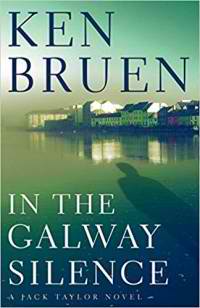Irontown Blues by John Varley
 Wednesday, November 14, 2018 at 7:15AM
Wednesday, November 14, 2018 at 7:15AM 
Published by Ace on August 28, 2018
Much of Irontown Blues is told from the perspective of Sherlock, a cybernetically enhanced bloodhound. Sherlock is honest and a bit snarky. His thoughts are translated by a human who has been trained to interpret communications from cybernetically enhanced animals.
The story starts with Mary Smith visiting Chris Bach. She believes she was deliberately infected with a designer form of leprosy and wants Bach to find the man who infected her. The Sherlock & Bach detective agency is located on the moon, one of the places where humans have dwelled since the alien invasion that claimed Earth.
Bach’s investigation takes him to Irontown, where the dregs of Lunar society live. The story delves into Bach’s past, to a time when the central computer went bonkers, which caused Bach to participate in unfortunate events in Irontown. (A subset of Irontown residents are known as Heinleiners. Unsurprisingly, they are libertarians. Fortunately, John Varley makes clear that he understands the limits of libertarianism. So did Heinlein, but Heinlein's reliance on “personal responsibility” as an alternative to a responsible government is too often honored in the breach by people who think libertarianism means "every man for himself.")
Eventually an organized crime group wants to kill Bach for convoluted reasons that aren’t quite plausible. All the background elements, including the alien takeover of Earth, the revolt of the central computer, the Heinleiners, and the organized crime angle, will probably seem confusing, or at least underdeveloped, to readers who are unfamiliar with Varley’s Eight Worlds universe of novels and stories. I recognized most of the references but the novel still seemed disjointed to me.
I set aside my difficulty suspending disbelief in major plot elements of Irontown Blues for the sake of digging the parts of the story that focus on Sherlock. I’m a sucker for stories told from a dog’s point of view, and while Irontown Blues isn’t one of Varley’s better efforts, I enjoyed it simply because a snarky bloodhound plays a dominant role. Varley captures the sense of loyalty and devotion, the need to be part of a pack and the willingness to view humans as the alpha dog, that makes dogs so special. The novel leaves room for a sequel, and as long as Sherlock is part of it, I’ll advance it to the front of my reading list.
RECOMMENDED



